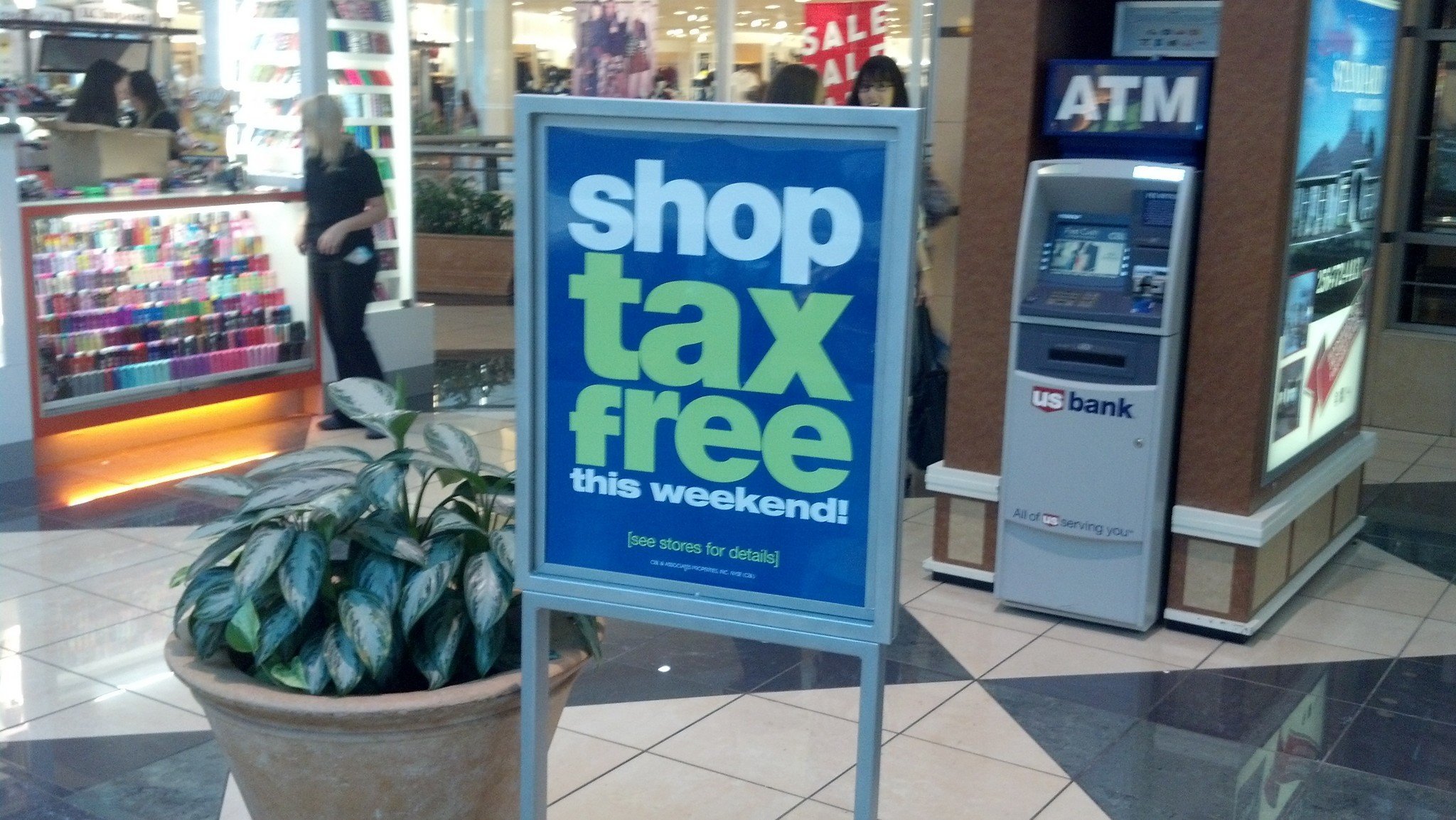Sales tax holidays are supposed to boost business and relieve shoppers, but they are underpublicized, damningly complex and easily manipulated. Although tax holidays are now popular (and expected) in roughly 18 states, they are more of mixed blessing than retailers and shoppers realize.
Most tax holidays focus on back-to-school savings with discounts on school supplies, clothing and computers. A few provide discounts on hurricane preparedness and Energy Star products. Louisiana and Mississippi, famously, offer tax holidays for firearms and ammunition (in addition to back-to-school holidays).
As The New York Times explains, New York became one the first states to implement a tax holiday back in 1997. The idea was to prevent back-to-school shoppers from seeking out lower taxes in New Jersey. During tax holidays, people tend to spend money on both taxable and exempt goods, so overall, New York had more to gain than lose.
Supposedly, stores and shoppers should both benefit from tax holidays. The data, however, tells an ambiguous story.
When Ohio was debating its first tax holiday in 2013, the Economics Center at the University of Cincinnati did a study on the pros and cons. They calculated that tax holiday would increase retail sales 4.8 percent during the month of the holiday, but this would be offset by an equal decrease in sales when consumers would otherwise make their purchases. So, the Economics Center concluded that “80 to 100 percent of the benefits from a tax holiday are realized by consumers.”
At face value, this makes sense. The National Retail Federation’s annual Back-to-School Spending Survey estimates that the average American family with children in grades K-12 will spend $630 on electronics, apparel and other school needs this year. That will add up to $24.9 billion nationally. CBS New York notes that teachers spend as much as $500 out-of-pocket on school supplies, too. Theoretically, if a Boston family spent $630 on back-to-school shopping minus Massachusetts’s 6.25 percent tax, they’d save about $39.
Unfortunately, businesses aren’t necessarily interested in giving shoppers a deal. As researchers at the University of West Florida found, before-tax prices at Florida retail establishments were higher than average during the state’s 2001 tax holiday. In 2009, one reporter in North Carolina found that many retailers scheduled their back-to-school sales to end just before the state’s tax holiday weekend, when many consumers plan to shop. In many cases, the reporter found that shoppers would end up paying more during the tax holiday than before it.
Tax holidays should be good marketing fuel for retailers, but in many states, the holidays are too haphazard and underpublicized. Take Massachusetts’ recent tax holiday on August 15 and 16. That weekend, all sales under $2,500 were tax free (with some exclusions), but the state legislature had only passed the tax holiday on August 6. Retailers couldn’t prepare adequately, and families on a tight budget probably did not have enough notice to plan for a shopping spree that one weekend.
In New York, too, the tax holiday seems to fly under the radar. Several years ago, a clothing company in New York called my company, Exactor, to tell us that our tax software wasn’t working. He said that three days prior, he had sold three items of clothing; two were taxed and one was not. Three days later, he rang up the same invoice, and nothing was taxed. Our software had to be broken!
As it turns, New York has a year-round tax exemption for clothing below $110 per item, which is why one of the items wasn’t taxed the first time. When he processed the same order three days later, New York was having a tax holiday weekend, which explained why no items were taxed. Unless tracking tax rules and regulations is a hobby of yours, it’s very easy to miss out (or question your software).
While families and teachers merit a tax break on school-related goods, this perk comes at a cost. This year, tax holidays in 18 states will cost an estimated $300 million in tax revenue, according to the Institute on Taxation and Economic Policy. The Boston Globe reports that Massachusetts’ wide-net holiday will cost the state $25 million alone.
Considering that Massachusetts is in the third worst fiscal condition of any U.S. state (48th place out of 50, in one ranking), does giving up tens of millions in tax revenue make any sense? Is the marginal benefit to shoppers really worth the long term consequences for the state and its taxpayers? Perhaps Massachusetts simply increases a less visible tax to compensate for the holiday.
While the intention of tax holidays are good, at least in the eyes of business and shoppers, there’s no clear winner and one certain loser: state budgets. Once a state implements a tax holiday, it will be hard to eliminate. For politicians, creating entitlements has always been easier than cutting them.
While I encourage businesses and shoppers to enjoy this year’s tax holidays, I would ask politicians to look more carefully at the pros and cons. Tax holidays might enhance a state legislature’s public image, temporarily, but are they really the best way to help local businesses and relieve families from back-to-school costs? Probably not.
Thanks for reading CPA Practice Advisor!
Subscribe Already registered? Log In
Need more information? Read the FAQs
Tags: Sales Tax




